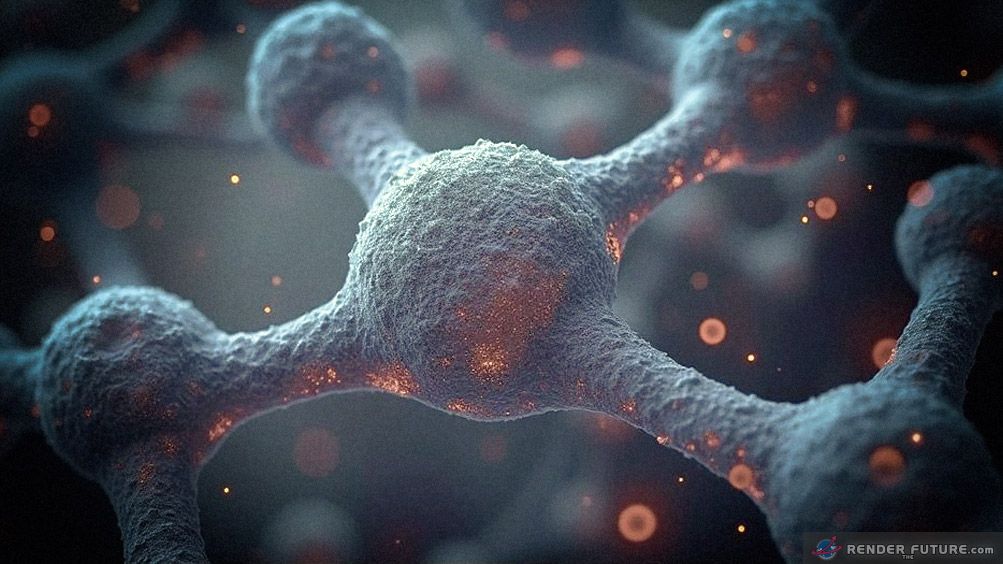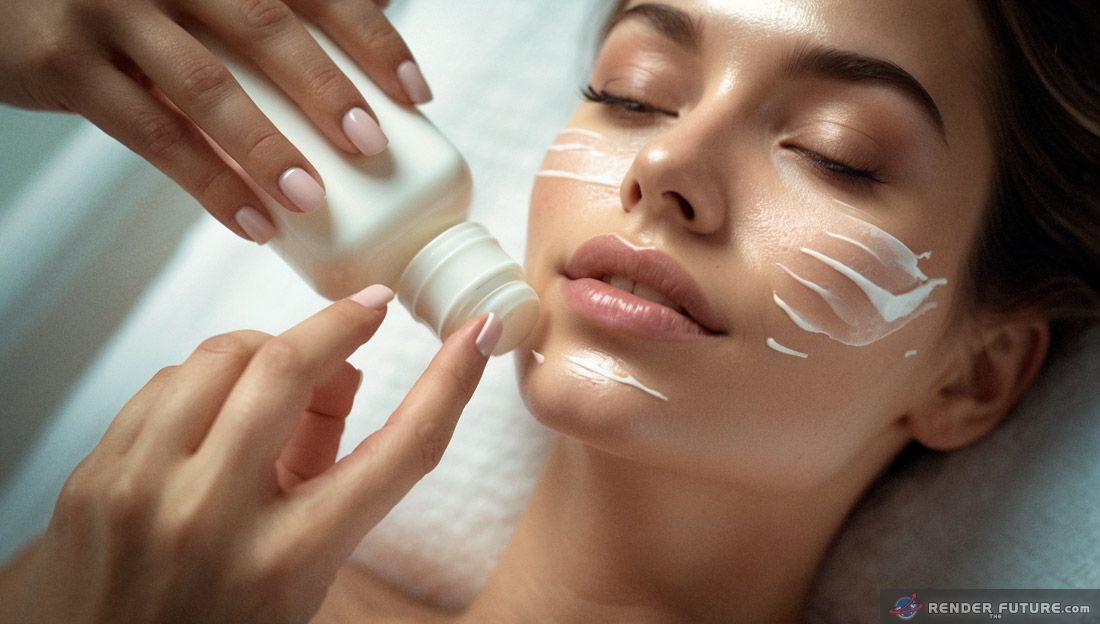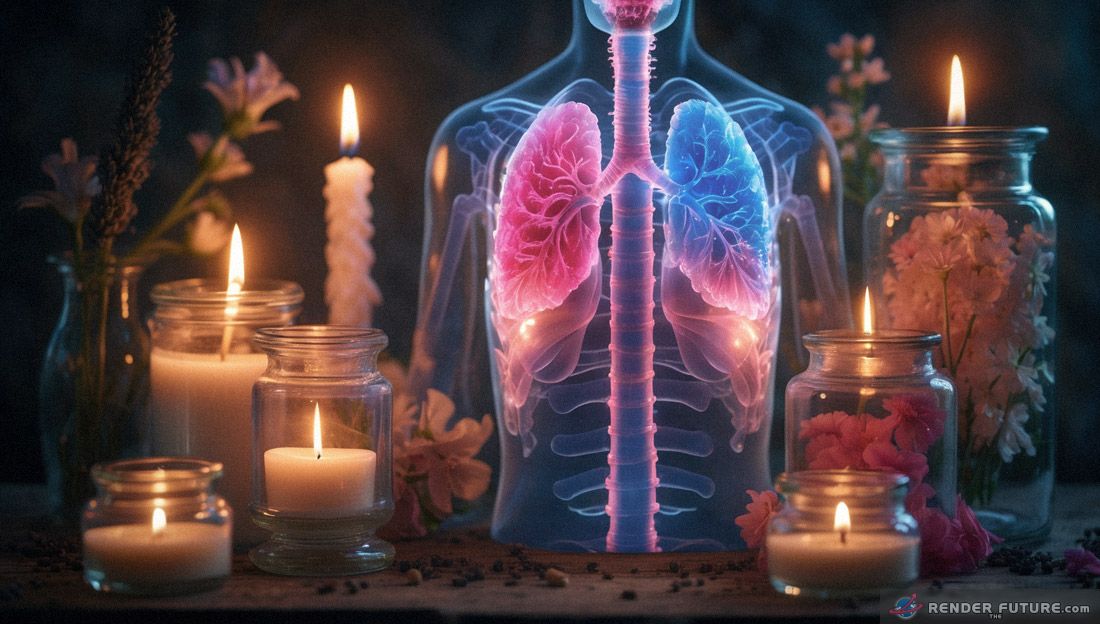The Air You Breathe is Being Hacked by Your Perfume
You’re Not Wearing Perfume – It’s Wearing You
 You spritz on your favorite perfume or smooth on scented lotion without a second thought. It’s just part of your routine — a small luxury, a confidence boost, maybe even a necessity.
You spritz on your favorite perfume or smooth on scented lotion without a second thought. It’s just part of your routine — a small luxury, a confidence boost, maybe even a necessity.
But what if these everyday products are doing more than just making you smell nice? What if they’re silently reshaping the very air you breathe?
The implications are staggering. Could your morning moisturizer be making you more vulnerable to indoor air pollution? Or could it, paradoxically, be shielding you from harmful chemical reactions?
The answers aren’t clear yet, but one thing is certain: the products we slather on our bodies are far more than skin-deep.
The Hidden Science of Skin and Air
What Is the Human Oxidation Field?
 Researchers made a startling discovery: human skin doesn’t just sit there — it reacts with the air. When natural oils in our skin meet ozone (a common indoor and outdoor pollutant), they generate hydroxyl radicals. These radicals act like microscopic cleaners, breaking down other airborne chemicals and purifying the immediate space around us.
Researchers made a startling discovery: human skin doesn’t just sit there — it reacts with the air. When natural oils in our skin meet ozone (a common indoor and outdoor pollutant), they generate hydroxyl radicals. These radicals act like microscopic cleaners, breaking down other airborne chemicals and purifying the immediate space around us.
 Think of it as your body’s own built-in air purifier. But here’s the catch — this system is delicate. And when we introduce foreign chemicals (like those in perfumes and lotions), the balance shifts.
Think of it as your body’s own built-in air purifier. But here’s the catch — this system is delicate. And when we introduce foreign chemicals (like those in perfumes and lotions), the balance shifts.
The Experiment That Changed Everything
To test how personal care products affect this oxidation field, scientists placed volunteers in a controlled chamber.
Volunteers sat in a controlled chamber, some spritzed with perfume, others with unscented lotion, while ozone levels mimicked everyday indoor pollution. The results? A silent chemical upheaval. Within minutes, the air itself transformed — like flipping a switch on your body’s invisible purification system.
The most shocking revelation? That floral eau de parfum you love doesn’t just linger on your skin — it rewires the chemistry of your personal space, leaving you exposed in ways science is only beginning to understand. The results?
The results?
- Your perfume doesn’t just smell nice – it reduces your body’s natural air-cleaning power by a shocking 86%
- Even basic lotion plays chemist – weakening your skin’s invisible protective shield
- The air around you transforms instantly – within minutes of applying these everyday products
This wasn’t just an experiment — it was a wake-up call, proving that what we put on our bodies doesn’t stay there. It changes us and rewrites the chemistry of the air we breathe.
The Million-Dollar Question: Should We Be Worried?
Here’s the twist — your body’s natural “air detox” system is a double-edged sword. Those hardworking hydroxyl radicals don’t just clean your air; sometimes they accidentally turn harmless chemicals into slightly sketchy ones. It’s like having an overzealous bouncer who occasionally kicks out the wrong person from the club.
So when your vanilla perfume slams the brakes on these radicals, is it:
✔️ Saving you from your own body’s overactive cleaning crew?
✔️ Or disarming your personal bodyguard against invisible indoor toxins?
 The crazy truth? Scientists are still scratching their heads. Your lavender body lotion might be playing 4D chess with your health — and right now, we don’t know if it’s winning or losing the game.
The crazy truth? Scientists are still scratching their heads. Your lavender body lotion might be playing 4D chess with your health — and right now, we don’t know if it’s winning or losing the game.
One thing’s clear: that innocent-looking bottle on your dresshelf is packing way more power than anyone realized. Our daily routines are part of a much larger biochemical conversation — one we’re only just starting to decode.
What This Means for the Future
A New Era of Product Safety Testing
Right now, cosmetics and perfumes are tested for skin irritation and allergies — but not for how they alter indoor air chemistry. This discovery could revolutionize safety standards, forcing manufacturers to consider:
- How their products interact with ozone and other pollutants
- Whether they disrupt natural oxidation fields
- Long-term health impacts of altered air chemistry
Envision a future where your perfume bottle comes with an “air reactivity rating” — a measure of how it affects your immediate environment.
The Future of Skincare: Your Personalized Air Upgrade
 Visualize this: Your morning moisturizer doesn’t just hydrate — it scans. As you apply it, microscopic sensors detect the ozone levels in your apartment, the pollution from last night’s candles, even the chemical aftermath of your cleaning spree. In milliseconds, it adjusts its formula, activating compounds that boost your skin’s natural air-purifying powers exactly when you need them most.
Visualize this: Your morning moisturizer doesn’t just hydrate — it scans. As you apply it, microscopic sensors detect the ozone levels in your apartment, the pollution from last night’s candles, even the chemical aftermath of your cleaning spree. In milliseconds, it adjusts its formula, activating compounds that boost your skin’s natural air-purifying powers exactly when you need them most.
This isn’t sci-fi — it’s the next frontier of beauty tech. We’re talking about:
🌆 City Shield Serums – Lotions packed with catalysts that supercharge your oxidation field when subway exhaust or smog hits your skin.
🕯️ Reactive Perfumes – Fragrances that transform in real-time, releasing protective compounds when they sense cigarette smoke or wildfire particles nearby.
🏠 Home Sync Mists – Sprays that communicate with your smart air purifier, creating a hyper-localized clean air bubble around your body.
The kicker? These innovations wouldn’t just prevent damage — they could turn your skincare routine into an active defense system. That floral body butter might soon do double duty as an invisible force field against pollution, allergens, and even viruses.
The beauty industry is already flirting with this future. Brands like Functional Fragrance are experimenting with mood-altering perfumes, while biotech startups are brewing living microbes that eat air pollutants. Your next signature scent could come with an EPA rating.
The Bigger Picture: Rethinking Indoor Air
We spend 90% of our lives indoors, yet we know shockingly little about the chemistry of our homes and offices. This research is a wake-up call — a reminder that human health isn’t just about what we eat or drink, but what we breathe and absorb through our skin.Here’s a disturbing truth: the average person spends more time indoors than a cave salamander.  Our homes and offices have become ecological bubbles where:
Our homes and offices have become ecological bubbles where:
Every scented candle burns a chemical signature into your lungs
That “fresh linen” air freshener is conducting invisible chemistry experiments
Your skin acts like a sponge for airborne molecules 24/7
We obsess over organic food and filtered water while breathing in a cocktail of:
→ Off-gassing from furniture
→ Kitchen fumes morphing into new compounds
→ Perfume molecules evolving in real-time
A Mysterious Frontier — With Hope Ahead
Science has peeled back another layer of the unseen world around us. The discovery of the human oxidation field — and how easily it’s altered — opens doors to healthier, smarter living spaces.
Will we one day design homes that optimize our natural air-cleansing abilities? Could skincare evolve to work in harmony with our biochemistry instead of disrupting it? The possibilities are as vast as they are thrilling. For now, the lesson is simple: the products we use don’t just affect us — they change the very air we share. And as science digs deeper, we may find that the secret to a healthier future lies not just in what we avoid, but in how we interact with the invisible chemistry of our world.
For now, the lesson is simple: the products we use don’t just affect us — they change the very air we share. And as science digs deeper, we may find that the secret to a healthier future lies not just in what we avoid, but in how we interact with the invisible chemistry of our world.

References and Sources
- Zannoni, N., et al. (2025). Science Advances – A study on how personal care products alter hydroxyl radical formation in human oxidation fields.
https://www.science.org/ - Shiraiwa, M., et al. (2022). Science – The original discovery of the human oxidation field and its role in indoor air chemistry.
https://www.science.org/ - Carslaw, N. (2025). University of York – Expert commentary on indoor air chemistry and human exposure risks.
https://www.york.ac.uk/










